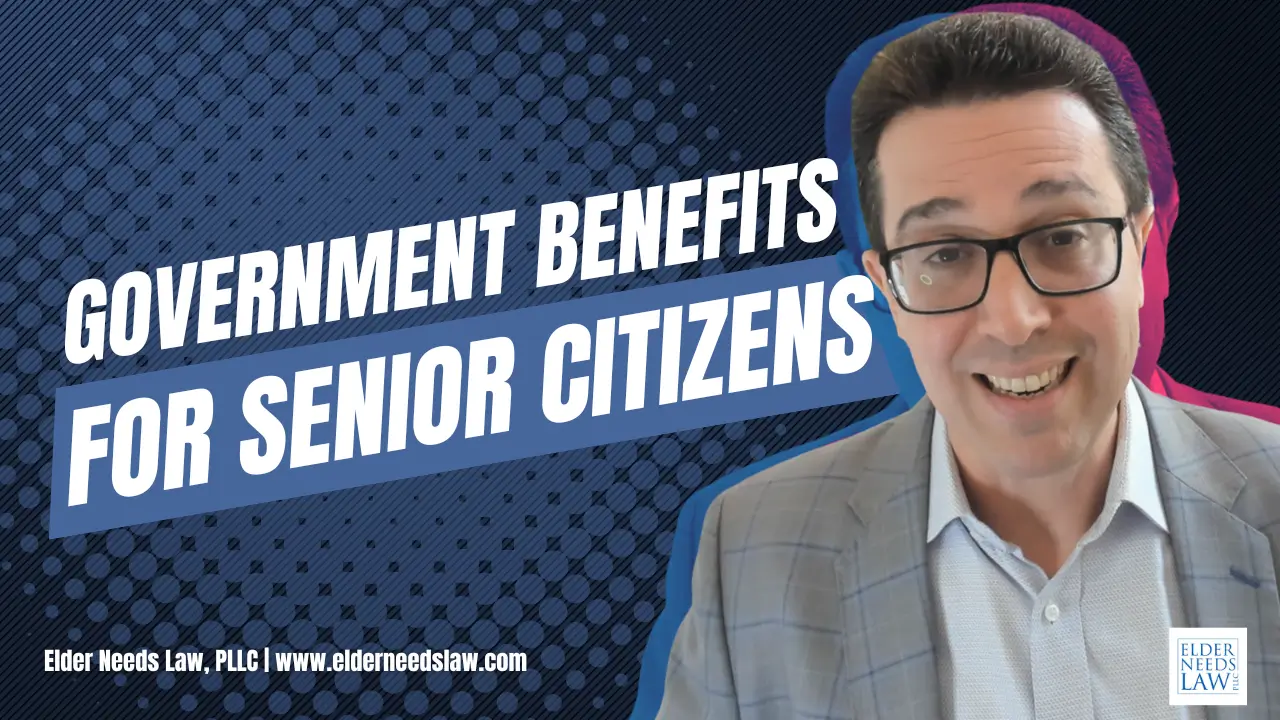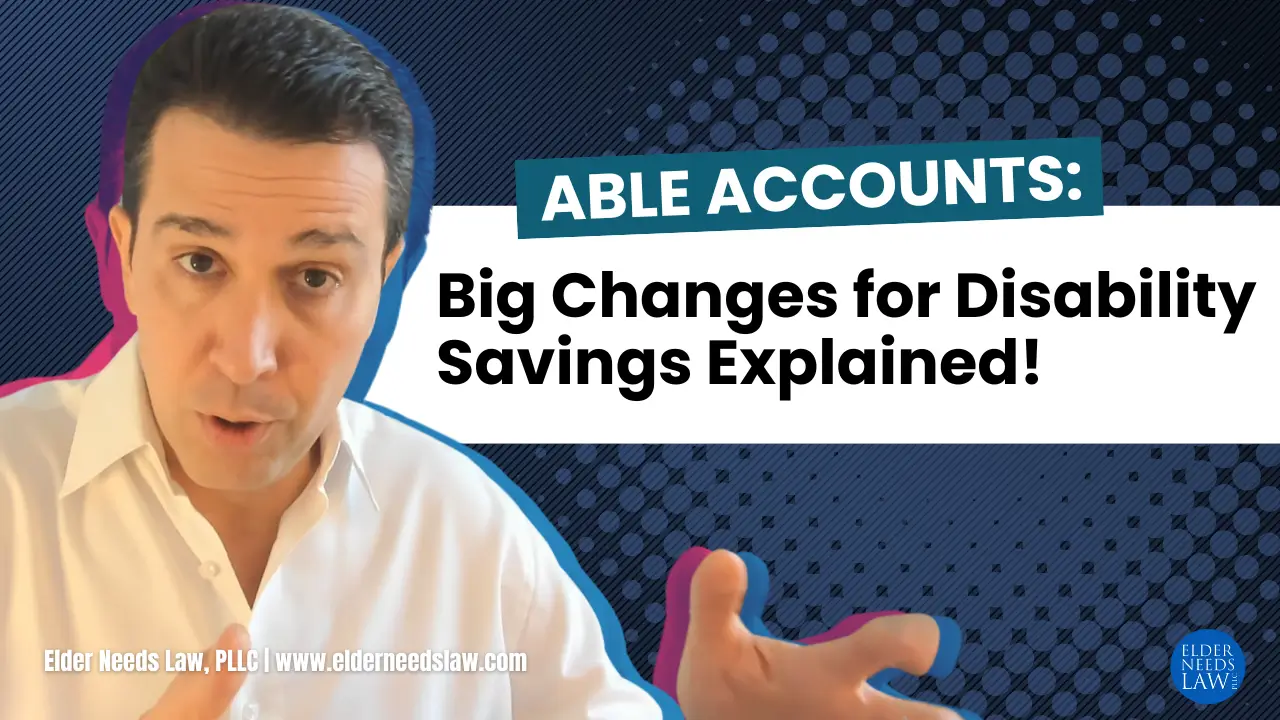Understanding Retroactive Medicaid Eligibility for Nursing Home Care in Florida

When a loved one enters a nursing home, the financial aspects can feel overwhelming. One of the most misunderstood topics in Florida Medicaid planning involves retroactive eligibility—and unfortunately, even some nursing facilities get this wrong.
What is ICP Medicaid?
First, let's clarify what we're discussing. Institutional Care Program (ICP) Medicaid is the specific program that covers individuals in skilled nursing facilities, rehab centers, or long-term care facilities in Florida. This is different from Medicaid waiver programs, which cover assisted living or home care services. The rules I'm about to share apply only to ICP Medicaid for nursing home residents.
How Retroactive Eligibility Actually Works
Here's the situation many Florida families face: You submit a Medicaid application, and then you wait. Sometimes you wait for months. The state agencies handling these applications are often short-staffed and dealing with significant bureaucratic delays. You might file in January and not hear back until March, April, or even later.
But here's the good news that nursing facilities don't always communicate clearly: If you were financially eligible in the month you submitted your application, your benefits will be backdated to the first day of that calendar month—not just the day you applied.
A Real-World Example
Let me walk you through a typical scenario to illustrate how this works:
January 5th: Your loved one enters a nursing facility with $100,000 in the bank.
January 20th: Through proper Medicaid planning (done legally and ethically), their assets are now below the $2,000 resource limit required for Florida Medicaid eligibility.
January 25th: You submit the ICP Medicaid application.
April 21st: The state finally approves the application.
Many families—and unfortunately, some facility billing departments—assume that Medicaid coverage only begins on January 25th (the application date) or April 21st (the approval date). This is incorrect.
Because your loved one was eligible for even one day during the month of January, their coverage is retroactive to January 1st—the first day of that calendar month.
Why This Matters for Your Finances
This retroactive provision protects families from accumulating massive nursing home bills while waiting for bureaucratic approval. Florida nursing homes are expensive, often costing $8,000 to $12,000 per month or more. Without retroactive coverage, families could face devastating financial consequences simply because of processing delays beyond their control.
What About the "Gap Period"?
During the months between application submission and approval, you're not left in financial limbo. Here's what you need to do:
Pay Your Patient Responsibility: Once you apply, you'll have what's called a "patient responsibility." In Florida, this is typically 100% of the applicant's monthly income minus a $160 personal needs allowance. (There are exceptions if you have a community spouse, but that's a separate topic.)
You should pay this patient responsibility every month while your application is pending. Then, once Medicaid approves your application, they will "backfill" the remaining costs—reimbursing the nursing facility for the months you were awaiting approval.
A Recent Case of Facility Misinformation
I recently worked with a Florida family whose Medicaid application was approved after several months. The nursing facility's billing department told them, "Your benefit only goes back to the date you filed the application, so you owe us for the earlier part of that month."
This was completely incorrect. According to Florida law, if you're eligible for any single day in a calendar month, you're eligible for the entire month. The family didn't owe anything beyond their patient responsibility for that period.
Why Do Facilities Get This Wrong?
Nursing facilities employ billing staff who may not fully understand the nuances of Florida Medicaid law. In some cases, they may be trying (intentionally or not) to collect additional payment from families who don't know their rights. In other cases, it's simply a lack of training or knowledge.
This is why having proper legal guidance during the Medicaid application process is so valuable—not just for planning purposes, but to protect your rights after approval.
The Planning Window
You might wonder how someone goes from $100,000 in assets to less than $2,000 in just 15 days (as in our January example). This is where proper Medicaid planning comes in.
There are legal, ethical strategies to protect assets while still qualifying for Medicaid. These might include:
- Purchasing exempt assets
- Setting up certain types of trusts
- Making compliant transfers
- Utilizing spousal protections
Each family's situation is unique, and these strategies must be implemented correctly to avoid penalties or disqualification.
Florida-Specific Considerations
Florida's Medicaid program has specific rules that differ from other states:
- Personal Needs Allowance: Florida allows nursing home residents to keep $160 per month for personal expenses (as of current regulations).
- Asset Limits: Single individuals must have less than $2,000 in countable assets to qualify.
- Income Diversion: When a community spouse is involved, Florida has specific rules about how much income can be diverted to support the spouse still living at home.
- Lookback Period: Florida enforces a five-year lookback period for asset transfers, meaning any gifts or uncompensated transfers made within five years of application can result in penalties.
What If You're Already in This Situation?
If you've already submitted an application and the facility is claiming you owe for periods before your application was processed:
- Request a detailed billing statement showing what they claim you owe
- Verify the dates of your application submission and eligibility
- Document your patient responsibility payments
- Contact an attorney if the facility continues to bill incorrectly
You have rights under Florida law, and facilities cannot legally charge you for periods when you were eligible for Medicaid coverage, regardless of processing delays.
Resources for Florida Families
Handling Medicaid planning and applications for nursing home care involves complex regulations that change periodically. If you're anywhere in Florida and facing questions about:
- Nursing home Medicaid eligibility
- What Medicaid pays nursing facilities
- Assisted living facility coverage
- Home care services through Medicaid
Professional guidance can make the difference between protecting your family's assets and losing everything to long-term care costs.
For more detailed information about Medicaid planning in Florida, you can visit Elder Needs Law or Medicaid Planning Lawyer.
You can also find comprehensive guidance in the book Medicaid: How to Protect Some of Your Assets and Pay for Your Long-Term Care Expenses, which breaks down these complex topics in straightforward terms.
The Bottom Line
Retroactive Medicaid eligibility exists to protect Florida families from financial devastation due to bureaucratic delays. If you were eligible for even one day in a calendar month, you're entitled to coverage for that entire month—and no facility can legally tell you otherwise.
Don't let confusion or misinformation cost your family thousands of dollars. Know your rights, pay your patient responsibility during the pending period, and don't hesitate to push back when facilities make incorrect claims about what you owe.
The Medicaid system is complicated enough without having to fight incorrect billing practices. With the right information and guidance, you can ensure your loved one receives the care they need while protecting your family's financial future.
This article provides general information about Florida Medicaid law and should not be considered legal advice for your specific situation. Medicaid rules can change, and each family's circumstances are unique. Consultation with a qualified attorney is recommended for personalized guidance.







